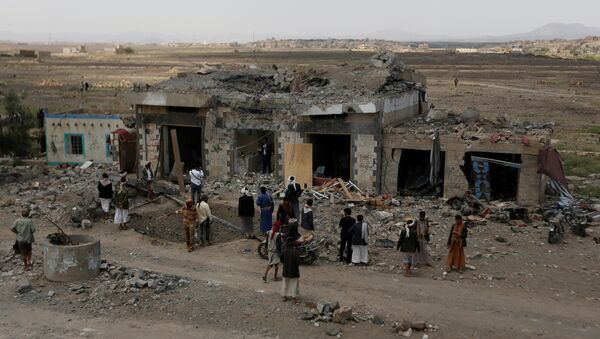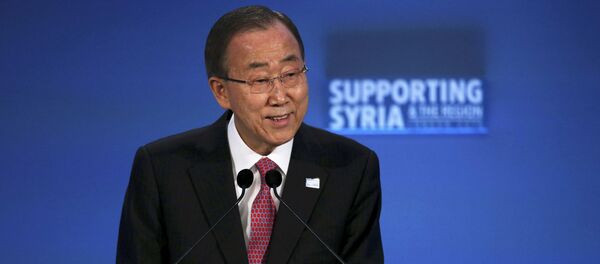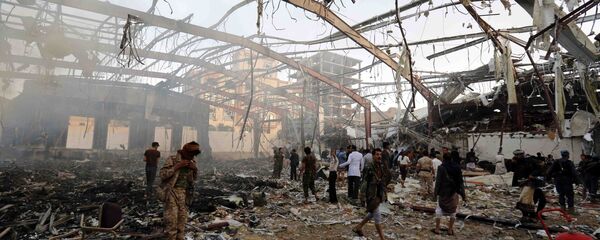The US House of Representatives voted overwhelmingly in support of House Resolution 599 Monday, passing the measure by a vote of 366-30. The bipartisan bill does not prevent US tankers from providing fuel to Saudi warplanes but does call for a political solution to the crisis, which House Democrats apparently saw as a compromise.
A previous bill introduced by House Democrats, HR 81, "in no way" restricted US military support of counterterrorism efforts in Yemen, Ro Khanna (D-CA) said September 27. "All this bill [HR 81] basically does is say we should not be assisting Saudi Arabia in Yemen," she said.
HR 599 "denounces the conduct of activities in Yemen and areas affected by the conflict that are, directly or indirectly, inconsistent with the laws of armed conflict, including the deliberate targeting of civilian populations or the use of civilians as human shields."
In October 2016, Saudi fighters carried out an airstrike in the Yemeni capital of Sana'a targeting people attending a funeral ceremony. The attack killed at least 140 people while wounding scores more, the UN said, while news reports indicated more than 200 lives were claimed. At the time, the White House said the incident was "deeply disturbing," but no efforts have been made to slow down the pace of the Saudi onslaught.
"Yes, we still provide tankers," Lt. Gen. Jeffrey Harrigan, chief of USAF Central Command, said at the Air Force Association's Air, Space and Cyber Conference in September.
The British and US governments have been eager to supply Riyadh with fresh armaments. London's "priorities are clear," Andrew Smith of the UK-based Campaign Against Arms Trade told Sputnik News in October 2016.
"What we've seen is government continually putting arms exports ahead of human rights and offering largely uncritical support to the Saudi Arabian government, which is one of the most brutal dictatorships in the world that has unleashed a humanitarian crisis on Yemen," Smith said.
Video shows moment 'double tap' air strike hits #Yemen funeral #IamwithJillBecause pic.twitter.com/vETrvpAAe8
— ❌Rosa❌#SaveYemen (@Rasa171a) October 10, 2016
A bomb dropped on a residential building in the Houthi-controlled capital city of Sana'a during September "was made in the USA," Amnesty International reported.
"We can now conclusively say that the bomb that killed [five-year-old] Buthaina's parents and siblings, and other civilians, was made in the USA," said Lynn Maalouf, research director for the Middle East at Amnesty International, adding that there is "no explanation" the UK, US or France could provide "to justify the continued flow of weapons to the Saudi Arabia-led coalition."
The coalition has imposed other measures to kill Yemenis, including a blockade of ports the country's people need to import food. This measure is particularly cruel, considering 90 percent of Yemeni food stocks are imported. "We have some 21 million people needing assistance and 7 million of those are in famine-like conditions," a UN representative said Tuesday.
The Saudi monarchy denies its culpability in the crisis, writing in a letter to the UN on Wednesday that Houthis' "continued resort to violence, refusal to return to legitimacy and abide by the relevant Security Council resolutions, have resulted in the catastrophic humanitarian situation and is obstructing the political solution to the conflict."





